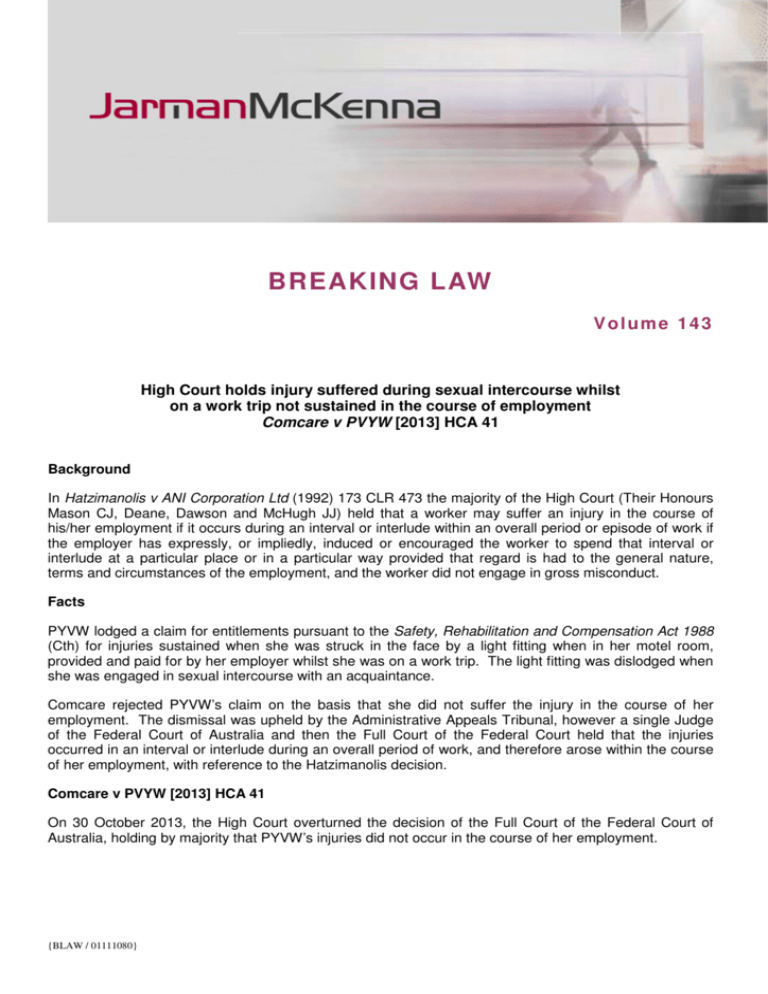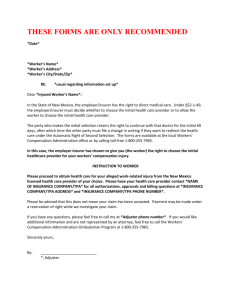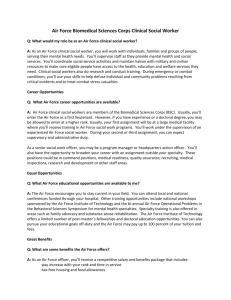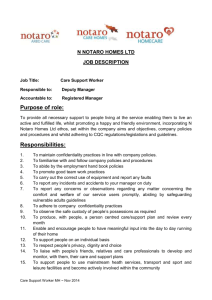breaking law - Jarman McKenna
advertisement

BREAKING LAW
V ol um e 1 4 3
High Court holds injury suffered during sexual intercourse whilst
on a work trip not sustained in the course of employment
Comcare v PVYW [2013] HCA 41
Background
In Hatzimanolis v ANI Corporation Ltd (1992) 173 CLR 473 the majority of the High Court (Their Honours
Mason CJ, Deane, Dawson and McHugh JJ) held that a worker may suffer an injury in the course of
his/her employment if it occurs during an interval or interlude within an overall period or episode of work if
the employer has expressly, or impliedly, induced or encouraged the worker to spend that interval or
interlude at a particular place or in a particular way provided that regard is had to the general nature,
terms and circumstances of the employment, and the worker did not engage in gross misconduct.
Facts
PYVW lodged a claim for entitlements pursuant to the Safety, Rehabilitation and Compensation Act 1988
(Cth) for injuries sustained when she was struck in the face by a light fitting when in her motel room,
provided and paid for by her employer whilst she was on a work trip. The light fitting was dislodged when
she was engaged in sexual intercourse with an acquaintance.
Comcare rejected PYVW’s claim on the basis that she did not suffer the injury in the course of her
employment. The dismissal was upheld by the Administrative Appeals Tribunal, however a single Judge
of the Federal Court of Australia and then the Full Court of the Federal Court held that the injuries
occurred in an interval or interlude during an overall period of work, and therefore arose within the course
of her employment, with reference to the Hatzimanolis decision.
Comcare v PVYW [2013] HCA 41
On 30 October 2013, the High Court overturned the decision of the Full Court of the Federal Court of
Australia, holding by majority that PYVW’s injuries did not occur in the course of her employment.
{BLAW / 01111080}
2
Majority Judgment
The majority of the High Court, Their Honours French CJ, Hayne, Crennan and Kiefel JJ held that the
principle in Hatzimanolis should be understood to require a connection or association with the
employment with reference to either:
(a)
the employer inducing or encouraging a worker to be at a particular place; or
(b)
the employer inducing or encouraging a worker to engage in a particular activity.
However, the majority continued that it is generally not enough for a worker to demonstrate that he/she
had suffered an injury in the course of his/her employment, by merely outlining that the injury had
occurred whilst the employer had required him/her to be at a particular place. Their Honours outlined that
it may be enough in circumstances where there was a defect in the particular place that caused the injury,
i.e. if the light fitting had fallen from the ceiling as it was insecurely fastened, PVYW’s injuries would have
been suffered in the course of her employment. Rather, the circumstance of the injury, i.e. in this instance
the activity leading to the injury (in this instance sexual intercourse with an acquaintance), needs to be
connected to the inducement or encouragement by the employer for it to be considered to be in the
course of his/her employment.
Minority Judgments
Each of Their Honours Bell and Bageler JJ would have upheld the decision of the Full Court of the
Federal Court, i.e. held that PVYW was acting in the course of her employment when injured during
sexual intercourse in her motel room.
Her Honour Bell J (in dissent) outlined in a separate judgment that there are case authorities that consider
certain activities will be considered to be in the course of a worker’s employment, whilst he/she is away
from their residence for work even if they are of a private nature, i.e. taking a shower. Her Honour
considered that to add a requirement that the activity engaged in at the time of the injury be connected to
the employment would be inconsistent with previous cases, and add a level of unnecessary complexity to
the Hatzimanolis principle. Her Honour highlighted that legislation could be enacted to curtail the
principle, and favoured the certainty and consistency offered by the principle.
His Honour Bageler J (in dissent) held in a further separate judgment that it was not necessary that the
worker be engaged in a particular activity which the employer had expressly or impliedly induced or
encouraged and, other than in instances of gross misconduct, he did not consider that any enquiry into
the particular private activity was relevant. He considered that it was sufficient that the worker was where
he would not be but for his/her employment, and was doing what a man or woman so employed might do
without gross impropriety.
{BLAW / 01111080}
3
Conclusion
An injury sustained in an interval or interlude during an overall period of work may be considered to have
been suffered in the course of a worker’s employment only if the circumstances of the injury are
connected to an inducement or encouragement by the employer.
If the injury was suffered when a worker was engaged in an activity, the activity needs to have been
induced or encouraged by the employer for it to have occurred in the course of that worker’s employment.
No person should rely on the contents of this publication without first obtaining advice from an appropriately qualified
person. Jarman McKenna expressly disclaims all and any liability or responsibility to any person in respect of any
action taken or omitted to be taken for any matter arising out of this publication.
Jarman McKenna is prohibited by anti-spamming legislation from sending commercial electronic mail messages
without the permission of the recipient. We prefer to forward information to you by electronic communication.
However, if you do not wish to receive electronic communications from us, please reply to this message requesting that
no further such communications be sent to your address.
{BLAW / 01111080}







